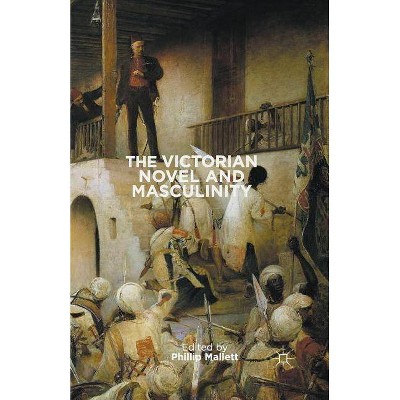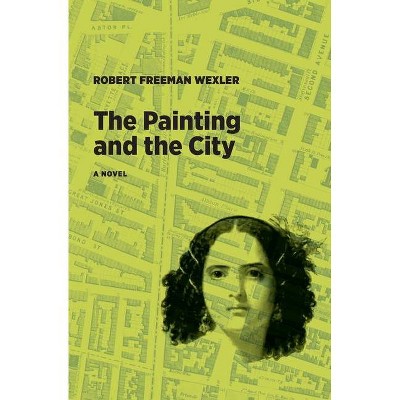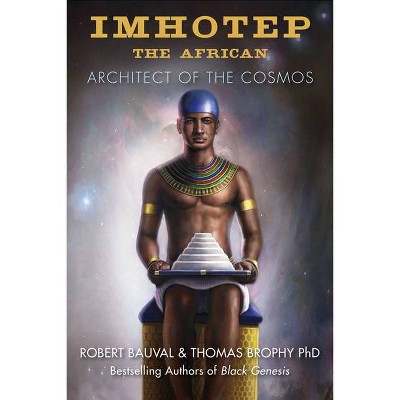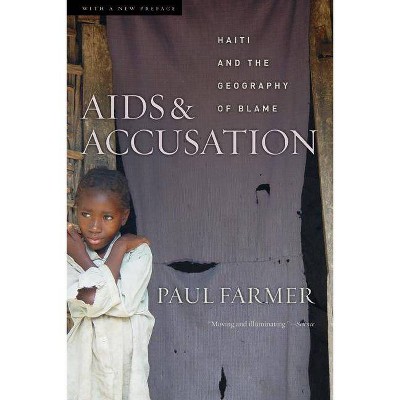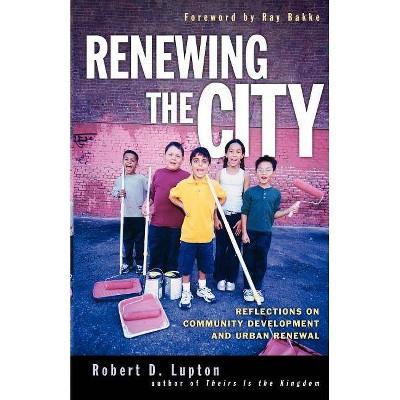AIDS and Masculinity in the African City - by Robert Wyrod (Paperback)
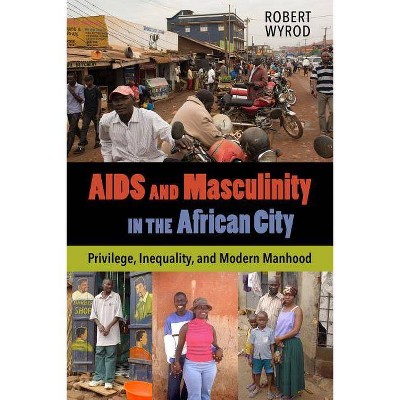
Similar Products
Products of same category from the store
AllProduct info
<p/><br></br><p><b> About the Book </b></p></br></br>"AIDS has been a devastating plague in much of Sub-Saharan Africa, yet the long-term implications for gender and sexuality are just emerging. This book examines how AIDS has altered the ways masculinity is lived in Uganda, a country known as Africa's great AIDS success story. Based on extensive ethnographic research in an urban slum community called Bwaise, this book reveals the persistence of masculine privilege in the age of AIDS and the implications such privilege has for men's and women's health and wellbeing in Uganda and beyond"--<p/><br></br><p><b> Book Synopsis </b></p></br></br>AIDS has been a devastating plague in much of sub-Saharan Africa, yet the long-term implications for gender and sexuality are just emerging. <i>AIDS and Masculinity in the African City</i> tackles this issue head on and examines how AIDS has altered the ways masculinity is lived in Uganda--a country known as Africa's great AIDS success story. Based on a decade of ethnographic research in an urban slum community in the capital Kampala, this book reveals the persistence of masculine privilege in the age of AIDS and the implications such privilege has for combating AIDS across the African continent.<p/><br></br><p><b> From the Back Cover </b></p></br></br><p>"Drawing upon meticulous ethnographic analysis, Wyrod immerses himself in the poorest areas of Kampala Uganda, a location that has long been hailed as a major success story in reducing HIV prevalence. Part of the claims of success have been linked to the rise in women's rights and changes in masculinities and in gender relations. Directly challenging these claims, Wyrod uses rich interview data and in-depth participant observation to show how and why masculinities and gender relations have--and have not--changed over time. He bravely and incisively argues that male sexual privilege remains mostly intact in the contemporary HIV/AIDS epidemic on the ground in this locale. Readable, interesting, and highly innovative, this book is a compelling must-read for those who are interested in sociology, global health, HIV/AIDS, feminist theory, masculinities, and gender relations."--Shari Dworkin, author of<i> Body Panic: Gender, Health, and the Selling of Fitness</i></p>"Provides an astute and ethnographically rich account of how the AIDS epidemic has shaped gender and sexuality in Uganda. Wyrod is empathetic without being overly sentimental, critical without being judgmental, and reflexive without resorting to navel-gazing."--Daniel Jordan Smith, author of <i>AIDS Doesn't Show Its Face: Inequality, Morality, and Social Change in Nigeria </i> <p/> "<i>AIDS and Masculinity in the African City</i> offers compelling new insights into AIDS in Uganda--one of the world's most talked-about success stories. Anthropologists, gender scholars, and public health practitioners should read Wyrod's important account of how AIDS reshapes--but also reproduces--dominant masculinities." --Mark Hunter, author of <i>Love in the Time of AIDS: Inequality, Gender, and Rights in South Africa</i><p/><br></br><p><b> Review Quotes </b></p></br></br><br>"<i>AIDS and Masculinity in the African City</i> brilliantly reveals the complexities of how men understand and construct their masculinity in urban Uganda. Robert Wyrod's ethnography focuses on Bwaise, an impoverished district within the capital city of Kampala. Through the experiences of men and women in Bwaise, he brings attention to the various ways that masculinity intersects with broader social transformations brought on by the HIV epidemic, urbanization, neoliberal economic transformations, and women's movements. The result is an ethnography that challenges the social imaginary that has demonized African men's sexuality in relation to HIV/AIDS."-- "City & Society"<br><br>"<i>AIDS and Masculinity in the African City</i> will be of great interest to anthropologists, sociologists, gender scholars and global/public health practitioners, but the book is also a compelling must-read for people concerned with and interested in urban ethnography, HIV/AIDS, feminist theory and masculinities."-- "Centre for Medical Humanities"<br><p/><br></br><p><b> About the Author </b></p></br></br><b>Robert Wyrod </b>is Assistant Professor in the Department of Women and Gender Studies and the International Affairs Program at the University of Colorado Boulder.
Price History
Price Archive shows prices from various stores, lets you see history and find the cheapest. There is no actual sale on the website. For all support, inquiry and suggestion messages communication@pricearchive.us

